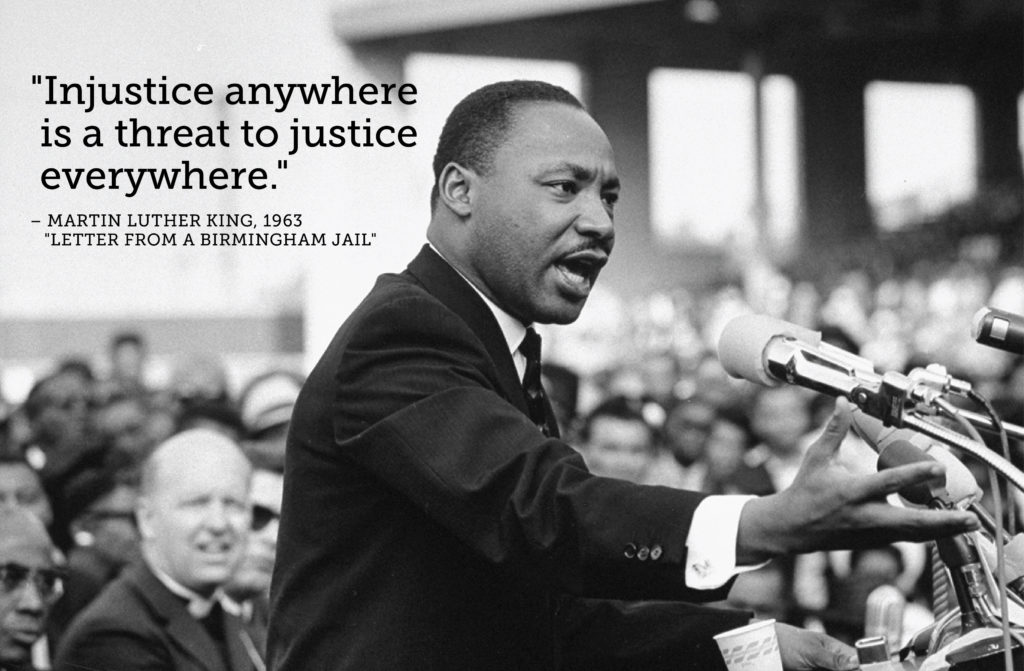Martin Luther King Jr. Day Acknowledgment, 2021
Martin Luther King Jr. Day Acknowledgment, 2021

”Injustice anywhere is a threat to justice everywhere.”
Today, Oregon Food Bank (OFB) honors and celebrates the life and legacy of Reverend Martin Luther King, Jr. for his contributions to America’s civil rights movement in the 1960s, in addition to the leaders who worked alongside him including Ella Baker, E.D. Nixon, James Bevel, John Lewis and Rosa Parks. We call on our communities to make this a day of action rather than simply a day off. We acknowledge honoring MLK Day is not just for remembrance, education and service; it is also a time to renew our commitment to achieving the vision that Rev. King sought to achieve.
Dr. King envisioned a world where all people felt valued, respected and supported regardless of their sex, age, race, ethnicity, national origin, range of abilities, sexual orientation, gender identity, economic status, education or political perspective. His passion for social change led to his devotion to advancing civil rights, equality and justice for all people.
Recognizing that inequalities and inequities exist within laws, policies and practices, he and other civil rights activists advocated for change through legislative process. United with the Beloved Community, they strove for equality and human rights for Black Americans, the economically disadvantaged and all victims of injustice through peaceful protest, grassroots organizing and civil disobedience. Though his life was tragically cut short, Dr. King’s accomplishments impact us to this day, including:
- Leading the Montgomery Bus Boycott
- Becoming the first president of the Southern Christian Leadership Conference in 1957
- Leading the Birmingham Campaign
- Serving as one of the organizers for the Great March on Washington for Jobs and Freedom and delivering the famous “I Have a Dream’ speech from the Lincoln Memorial
- Being recognized as “Man of the Year” in Time Magazine in 1963
- Organizing and leading marches for voting rights of Blacks, desegregation and labor rights, which led to the Civil Rights Act of 1964 and the 1965 Voting Rights Act
- Receiving the Nobel Peace Prize in 1964
- Taking a stance against US involvement in the Vietnam War
His successes continue to guide civil rights movements in the present and serve as a model for how we can combat injustices and inequities today.
Every day, in his honor, OFB strives to achieve equity and security among people experiencing hunger and poverty in Oregon, Southwest Washington and at the national level. Engaging in the tactics that Dr. King has laid before us, we are generating momentous strides for equity, justice and inclusion alongside our Beloved Community to dismantle the laws, policies and practices that perpetuate systemic inequalities.
In his 1961 speech “The Future of Integration” at New York University, Dr. King said: “Human progress is neither automatic nor inevitable … Every step toward the goal of justice requires sacrifice, suffering and struggle; the tireless exertions and passionate concern of dedicated individuals.” It is in this spirit that we strive for justice, and look forward to a day when all are treated with the respect and dignity they deserve.